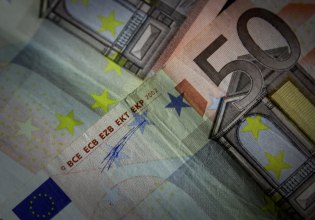Eurostat: Inflation in Greece in April at 9.4%
Inflation in the eurozone at 7.5%
Inflation in Greece jumped to 9.4% in April, according to Eurostat data. At the same time in the eurozone reached 7.5%.
According to official Eurostat data released today, the harmonized index of consumer prices continued its upward trend and climbed to 9.4% against a performance of -1.1% in the corresponding month of 2021.
In March 2022, the corresponding index was set at 8%, while the consumer price index of ELSTAT was set at 8.9%. This means that the data of the Greek service for April may move to a 2-digit percentage, as OT wrote yesterday.
Change of forecast
In any case, the government has already revised its 2022 annual inflation forecast, which is expected to be recorded in the Stability Program 2022-2025, which is expected to be submitted to the Commission on 30 April. According to information, the percentage now predicted by the government’s financial staff is in the range of 5.5% -6%.
However, more “dark” assessments have seen the “light” of publicity and . In the basic scenario of the BoG, inflation is at 5.2% and in the unfavorable at 7%, while the IMF “sees” inflation of 4.5%.
It is noted that increases of even up to 11% have been recorded in 2022. According to the Parliamentary Budget Office, in the basic scenario, inflation will rise to 6.99% in 2022 and growth to 3.58%. Under the mild scenario, growth will reach 2.75% and inflation at 7.43%. In the extreme scenario, growth reaches 2.21% and inflation 11.01%.
New high in the eurozone
At the same time, inflation in the eurozone reached a new high in April, which is a cause for concern for European Central Bank officials.
In particular, inflation stood at 7.5% in April from 7.4% in March, according to estimates, mainly due to rising energy and food prices, according to Eurostat data.
The biggest thorn in the eurozone’s annual inflation was the energy sector, with prices rising 38% year-on-year, followed by food, alcohol and tobacco, up 6.4% year-on-year.
It is worth noting that inflation, excluding food and fuel prices, rose to 3.9% from 3.2%, while excluding the prices of alcohol and tobacco products, rose to 3.5% from 2.9%.
- Κακοκαιρία: Ποιες περιοχές έχουν ντυθεί στα λευκά – Πού σημειώνονται χιονοπτώσεις
- O Ολυμπιακός «εκτόξευσε» τις πιθανότητες του – Τι λένε οι αριθμοί μετά τη σπουδαία νίκη με τη Λεβερκούζεν (pics)
- Στράτος Τζώρτζογλου: «Με την Σοφία Μαριόλα χωρίσαμε, αλλά… δεν χωρίσαμε»
- Consumer Protection Heads Approved by Committee
- NBA: Διέλυσαν τους Κλίπερς οι Μπουλς (138-110) – Διπλό στο Ντένβερ οι Λέικερς (107-115)
- Δολοφονία στο Αγρίνιο: Απολογείται σήμερα ο 44χρονος – «Δεν περίμενα να φτάσουν τα πράγματα σε αυτό το σημείο»
- Η Σονάτα του Σεληνόφωτος: Η εξομολόγηση του Γιάννη Ρίτσου
- Πού θα χτυπήσει με σφοδρότητα η κακοκαιρία, οι κόκκινες περιοχές – Κίνδυνος για πλημμύρες, μπαράζ 112, κλειστά σχολεία
Ακολουθήστε το in.gr στο Google News και μάθετε πρώτοι όλες τις ειδήσεις








![Άκρως Ζωδιακό: Τα Do’s και Don’ts στα ζώδια σήμερα [Τετάρτη 21.01.2026]](https://www.in.gr/wp-content/uploads/2026/01/daniel-joshua-Vxr9QbwI3hQ-unsplash-1-315x220.jpg)













































































 Αριθμός Πιστοποίησης Μ.Η.Τ.232442
Αριθμός Πιστοποίησης Μ.Η.Τ.232442